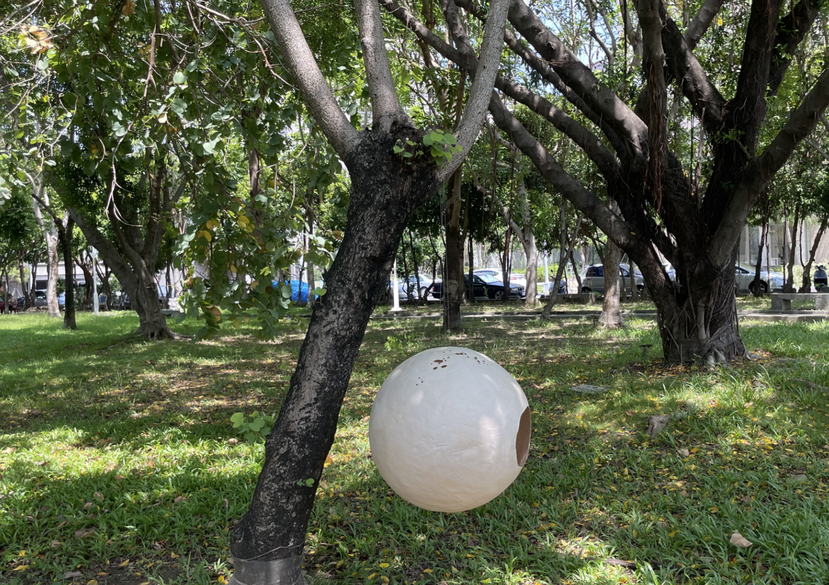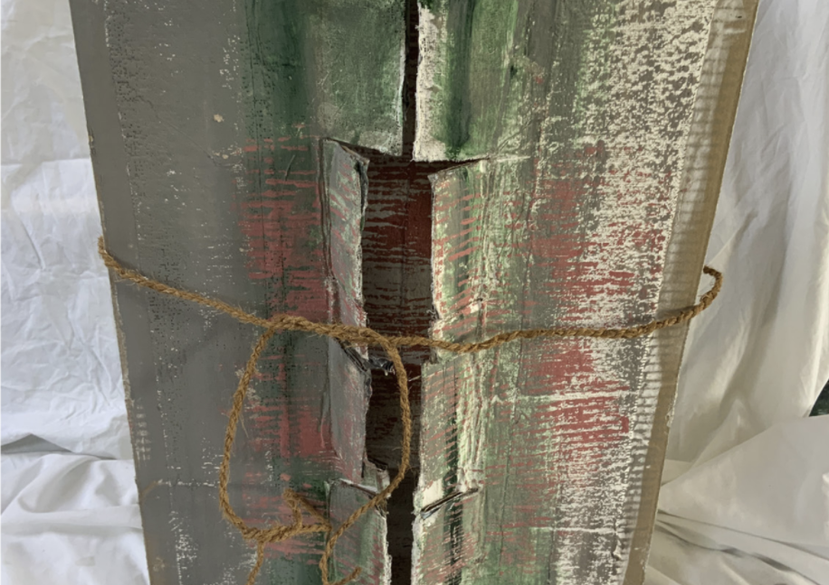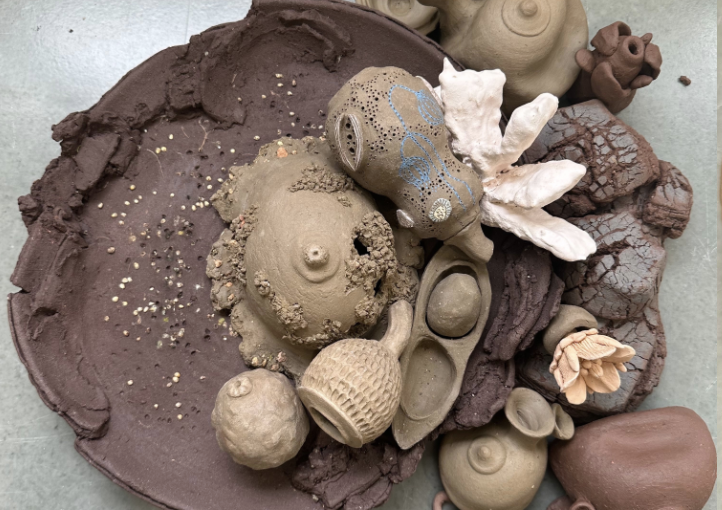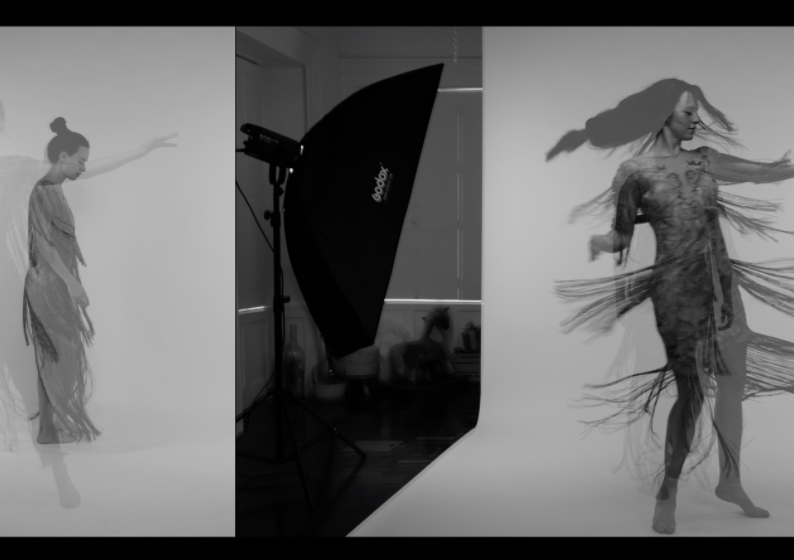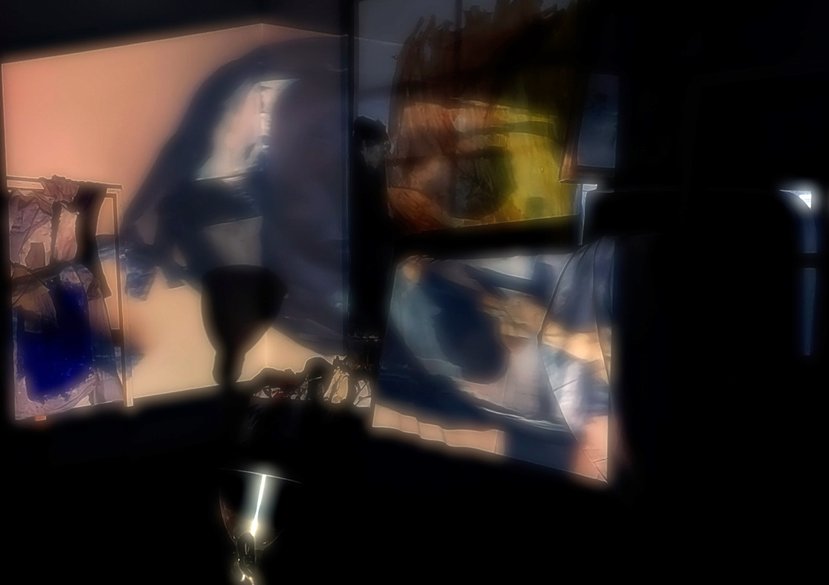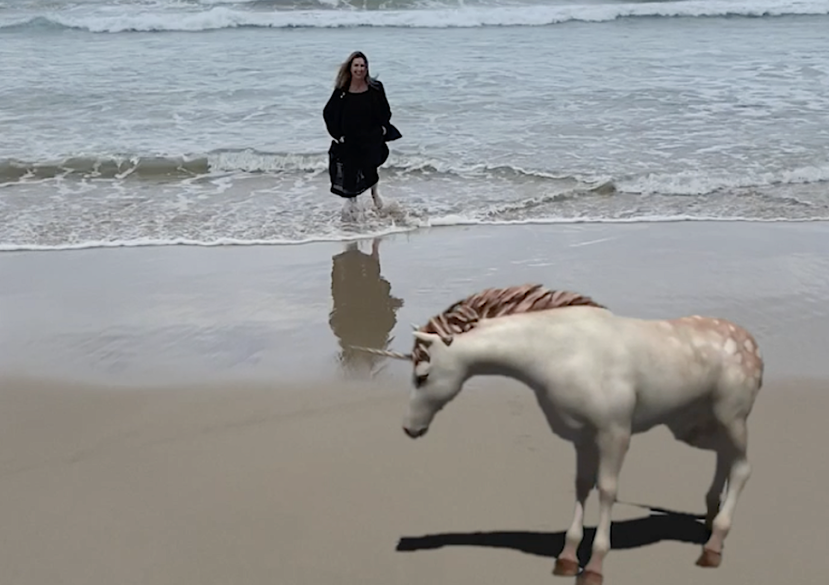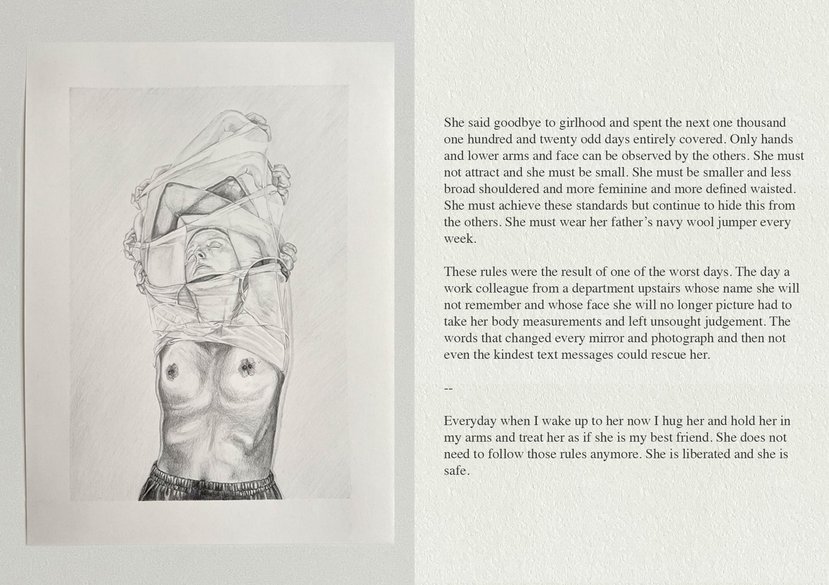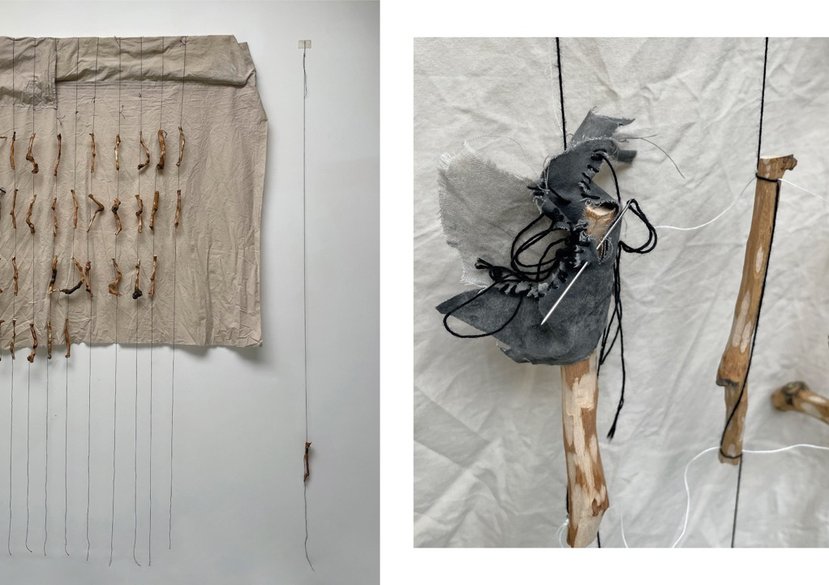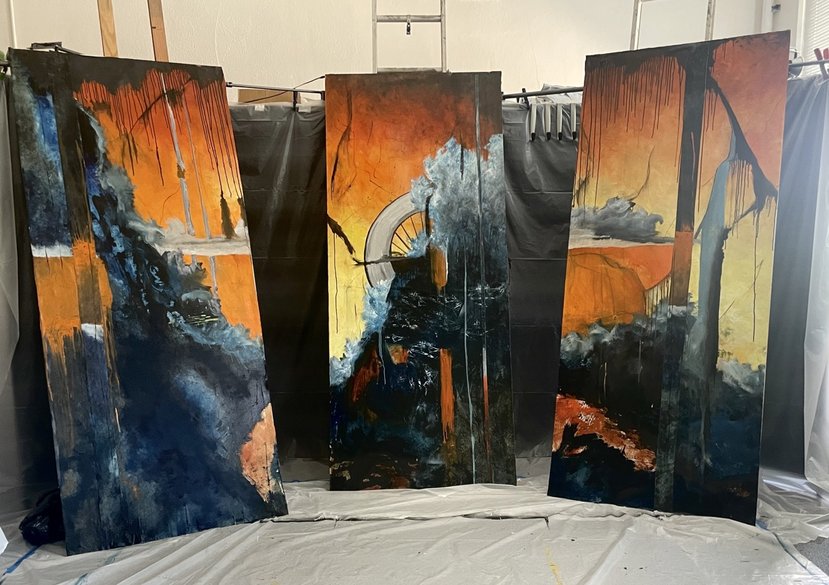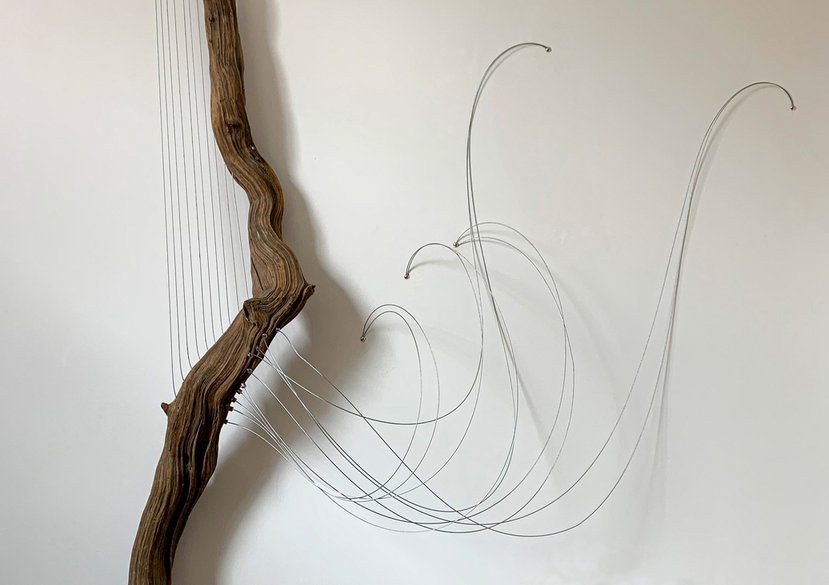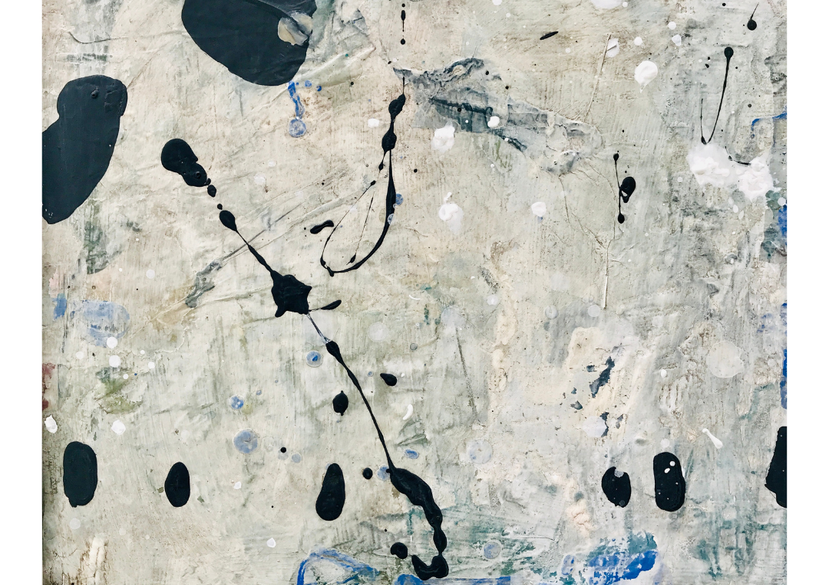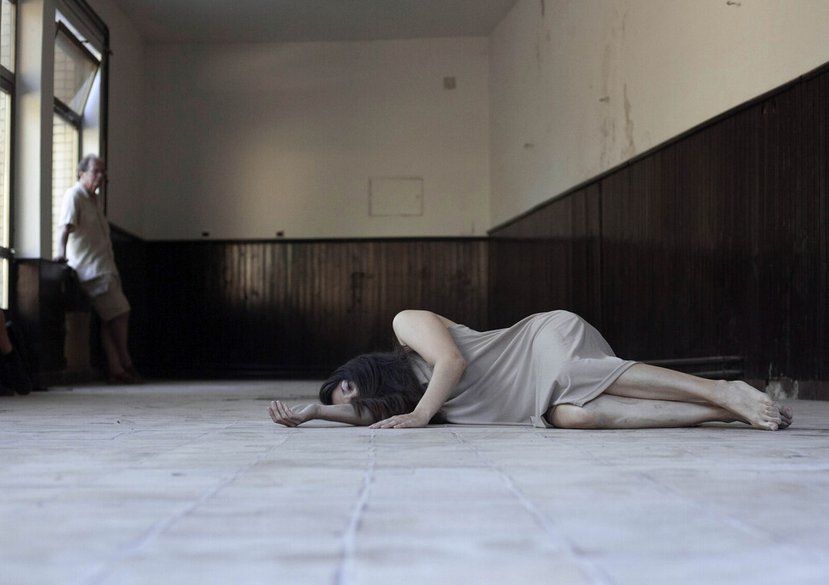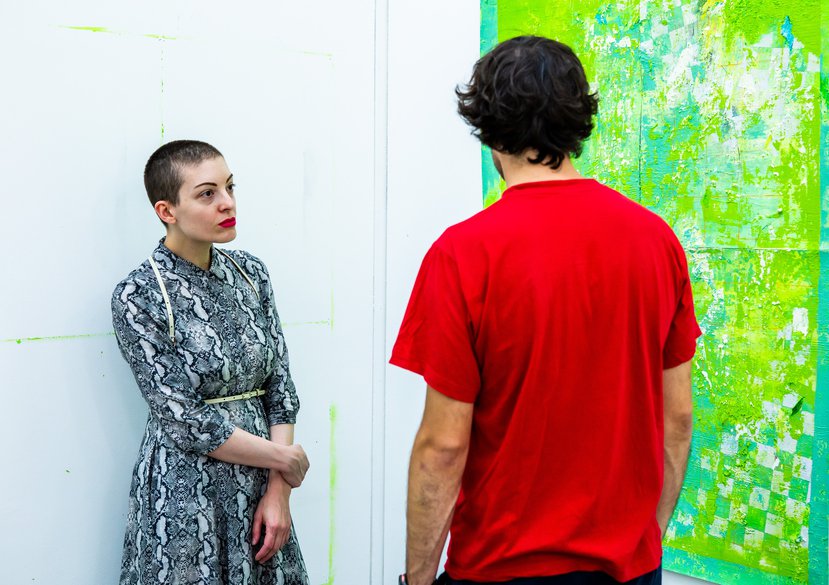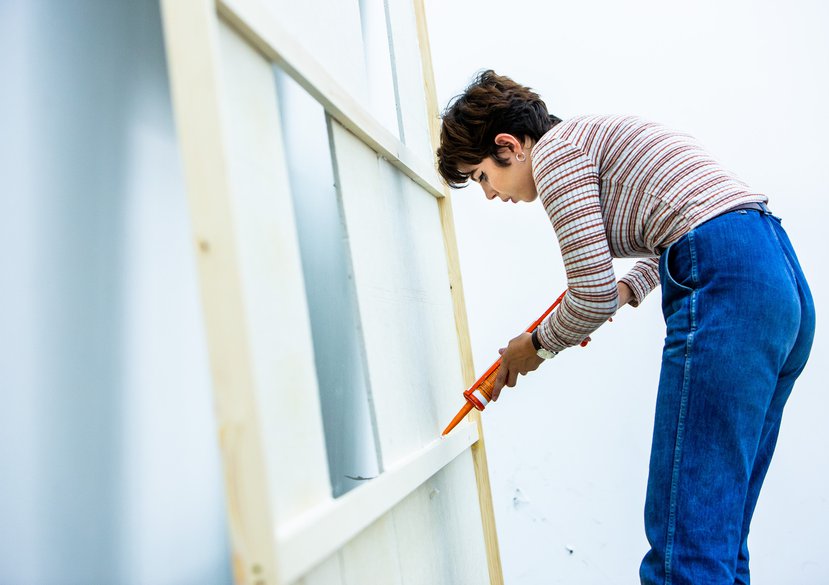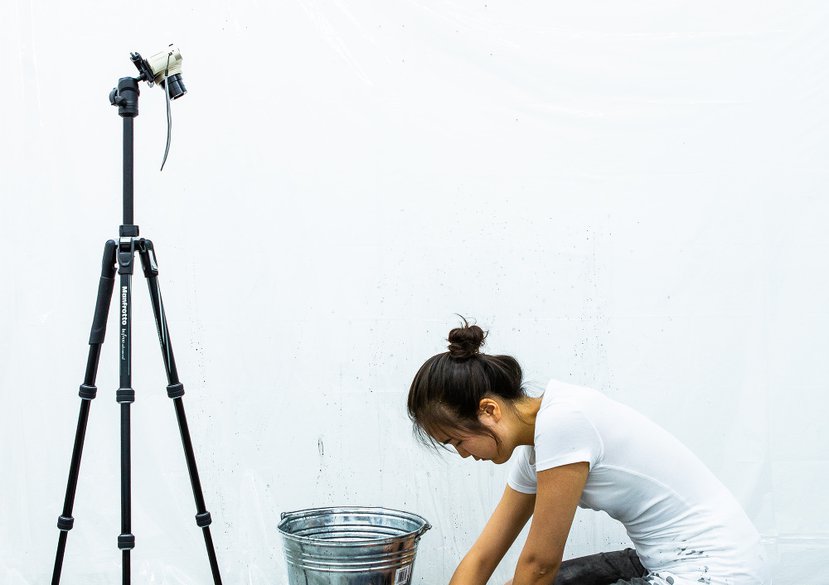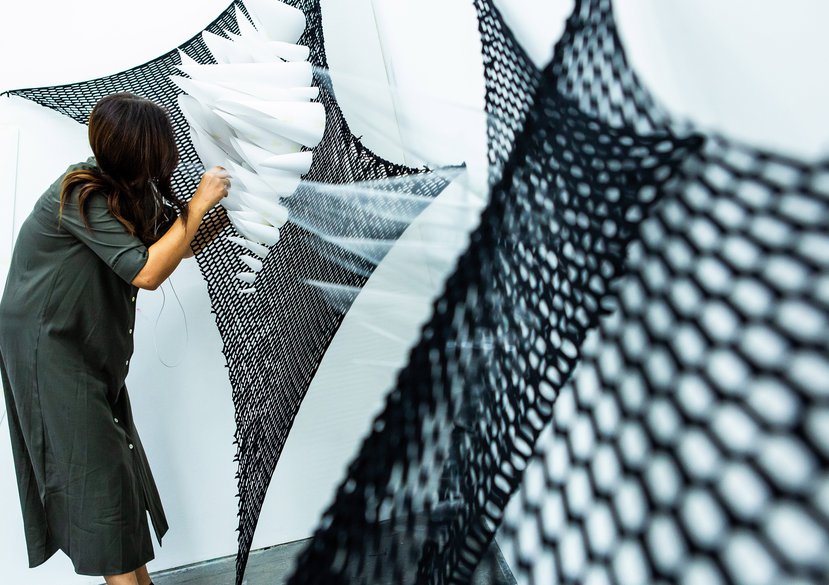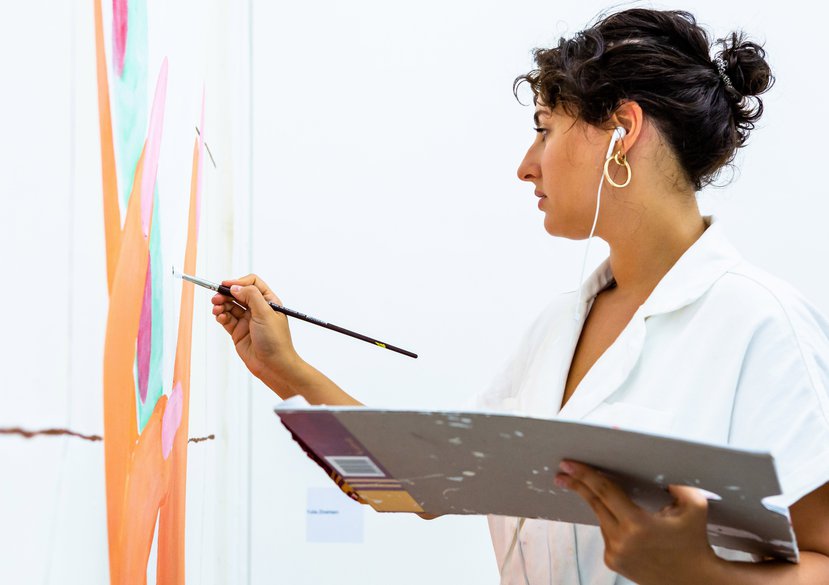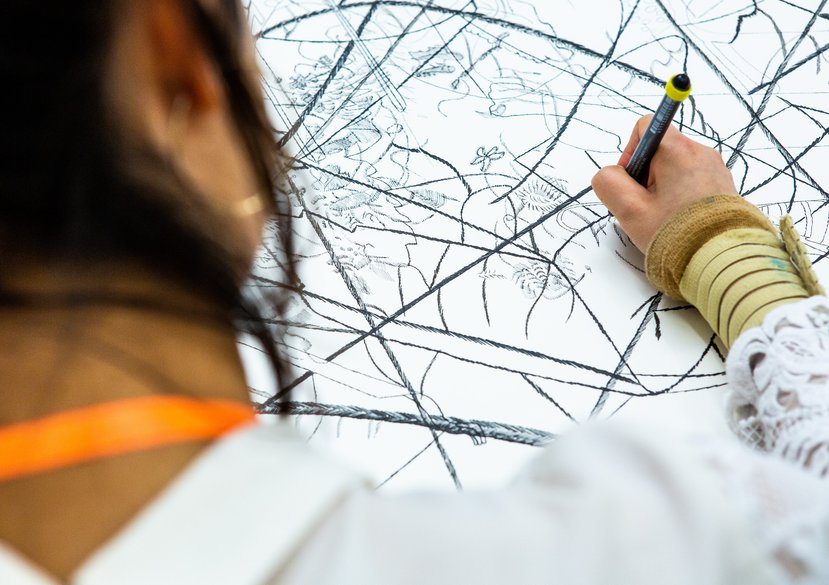
A practice-led introduction to the study and practice of contemporary art, structured around the development of your own self-motivated individual project, delivered live online.
Key details
Fees
- Spring Discount until 25th April: £2,160
- Full Fee: £2,400
Dates
-
21 July - 8 August 2025
Location
-
13 sessions over 3 weeks
4.5 hrs a day 11am – 3.30pm BST per day (with a 1-hour break included)

The interactive online Contemporary Art Summer School, led by performance artist and academic researcher Dr Despina Zacharopoulou since 2017, examines the rich array of positions, methods and materials that artists use, as well as exploring the questions raised by contemporary art and its production.
This three-week, online, practice-led short course provides a supportive environment for self-led independent practice and introduces participants to the study of contemporary art within the academic environment of the Royal College of Art.
Taught by RCA staff and supported by a broad range of prominent artists, academics, critics and curators, the course provides participants with the opportunity to develop their individual practice within an interdisciplinary, collaborative atmosphere.
The theme of 2025 is ‘Ana-Meta-Materialisms’ exploring how contemporary art practices reinvents, rethinks and references itself.
Contributors and tutors for the 2025 programme are:
- Multidisciplinary artist, Emma Fineman
- Visual Artist and Lecturer, Giorgos Kontis
- RCA Senior Tutor (Research, MA Painting), John Slyce
- RCA Senior Tutor (Research), Professor Johnny Golding
- RCA PhD Candidate, Julia Wolf
- RCA Alumni, Harriet Tinney
- RCA Associate Lecturer (CAP), Juliet Jacques
- RCA Associate Lecturer (Photography and Academic Development), Tom Lovelace
About the course
Theme
Ana-Meta-Materialisms
Contemporary art practice reinventing, rethinking and referencing itself
This year’s Contemporary Art Summer School theme suggests a reimagining of contemporary art practice via processes of redoing, repeating, mutating, self-referencing and rethinking, that might give birth to new artistic paradigms. By fostering non-rational, embodied and sensuous knowledge-generative methodologies, the RCA Summer School continues its focus on individual and independent practice.
This theme is treated loosely and as a framework within which the course evolves. Students are allowed to respond to this theme in any way they see fit and to the extent that they feel it contributes to the development of their work.
Living in an era dictated by the virality and mutation of information spread throughout social media, Artificial Intelligence and the internet in general, it has become more urgent than ever to rethink the role of feedback loops in the production of images and modes of thought in contemporary artistic practice. Feedback loops are closed systems indicating the repetition of a single movement that turns back on itself, to repeat again and again. However, this obsessive turning upon itself, doesn’t happen without a trace or a glitch, always living a certain kind of remainder or residue every time it repeats itself, thus returning always reinvented and always different.
We are interested in investigating the fundamental question:
- “What might be the role of feedback loops in contemporary artistic practice?”
- How can an artist raise questions relating to contemporary art materialisms, ideas, practices and histories, via processes of repeating, redoing, rethinking and self-referencing [art referencing itself]
For the exploration of these questions, we will refer to artists and thinkers such as: Deleuze, Golding, Hirst, Warburg, Satie, Nail, Mandelbrot, among others.
Structure
Learning takes place in 13 live four-hour sessions over a three-week period. Each session includes a one-hour break.
A slot for networking will be available at the end of each session (optional to attend).
Week 1
- Day 1: Welcome keynote lectures and student presentations
- Day 2: Individual tutorials
- Day 3: Lecture and reading group
- Day 4: Technical support workshop
- Day 5: Film screening and discussion
Week 2
- Day 1: Group crits
- Day 2: Group workshop
- Day 3: Technical support workshop
- Day 4: Film screening and discussion
Week 3
- Day 1: Individual tutorials
- Day 2: Lecture, examples, readings and discussion around exhibiting one’s work online with a curating expert. Film screening and discussion
- Day 3: Final presentations, crits and response seminar (part 1)
- Day 4: Final presentations, crits and response seminar (part 2)
Contributors
The course is led by Dr Despina Zacharopoulou, performance artist and Dr of Philosophy & Fine Art (Performance), RCA.
Contributors and tutors for the 2025 programme are:
- Multidisciplinary artist, Emma Fineman
- Visual Artist and Lecturer, Giorgos Kontis
- RCA Senior Tutor (Research, MA Painting), John Slyce
- RCA Senior Tutor (Research), Professor Johnny Golding
- RCA PhD Candidate, Julia Wolf
- RCA Alumni, Harriet Tinney
- RCA Associate Lecturer (CAP), Juliet Jacques
- RCA Associate Lecturer (Photography and Academic Development), Tom Lovelace
Outcomes
You will:
- Expand your practice and knowledge on contemporary art through workshops, lectures, film screenings, tutorials and group crits.
- Improve your presentation and discussion skills while presenting your work to RCA staff, visiting artists, and academics, in a professional and diverse environment.
- Receive feedback and practical advice from RCA staff and experts in contemporary art.
- Develop your work under the supervision of the course leader.
- Get dedicated time for independent study in your own space.
- Benefit from professional online technical support to develop your practice.
- Immerse yourself in a multidisciplinary environment
- meet artists from all over the world.
- Have an online presence at the RCA short courses social media accounts and case studies, including final feedback from the course leader, other RCA members of staff and a group of peers.
- Receive an RCA Certificate of Attendance.
Read case studies
How will you learn?
You will:
- Present your work and receive feedback and practical advice from the course leader, other RCA members of staff and a group of peers.
- Problematise around your own practice and re-situate it after acquiring more theoretical and practical knowledge through lectures, film screenings, reading suggestions and workshops.
- Be more decisive in your practice while working on your individual project to be presented at the end of the course.
- Immerse yourself in a multidisciplinary environment.
- Meet artists from all over the world.
Digital platforms and tools
RCA online courses are organised in synchronous sessions in a live virtual environment that combines various digital platforms and tools.
Zoom
Using the video conferencing service Zoom, the RCA's esteemed academics and facilitators deliver a mix of:
- live lectures
- case studies
- guided assessments
- presentations
Miro
Participants engage in cross-functional team work with the use of visual collaboration tools. Through the online whiteboard platform Miro, participants get to:
- interact with various formats and templates
- plan and brainstorm ideas
- create processes and workshop activities in the digital workspace.
Moodle
The College's learning platform Moodle is personalised according to the course's requirements to provide participants with a secure integrated system where they can access the course content. The hub hosts a plethora of useful resources to enable the learning experience, including comprehensive timetables, pre-reading materials, course slides, curated videos, tutorials and session recordings.
Slack
Participants stay connected and communicate via the channel-based messaging platform Slack throughout the whole duration of the course. In this space, the academics, facilitators and delegates get to network, plan the course activities, share documents and files during the live sessions or offline.
Who should attend?
- Practising artists who wish to develop their own personal and professional fine art practice in a world-leading environment.
- Postgraduate level students or undergraduates preparing for Master’s study.
- Prospective MA, MRes, MPhil and PhD students interested in joining the RCA.
- Career changers or those interested in contemporary art.
Application process
Applications for 2025 places are live.
Admission criteria:
Participants must:
- have a successful application
- be fluent in English
- be 21 years old or over.
How do I apply?
To apply, you need to complete an online application form and submit:
- 200-word statement explaining relevant professional and/or academic experience.
- 200-word statement explaining your motivations for doing the course.
- 200-word proposal for a project or studio work that you intend to undertake during the course
- Five images or five web links to videos/web references of your work, max 10 MB file size
- your CV.
Application notes
- Please title the five references to your work using the following naming convention: Full Name_Title and Year of Work_2025 Contemporary Art Application
- Please title the CV file before uploading using the following naming convention: Full Name_CV_2025 Contemporary Art Application
- Once you submit your application, you will not be able to make changes.
- Only applications submitted via the online form will be accepted.
- Applications that are not complete or exceed the maximum file size will not be considered.
If your application is accepted, you will be emailed with a booking link. The email will provide a deadline for accepting and paying for your place. Your place will be held until this deadline. If you do not make payment by this date, your place will be released and offered to another participant.
Application deadlines 2025
- Participants are advised to apply early to avoid disappointment as places are strictly limited.
- The RCA course team will assess applications every two weeks from mid-January 2025 until early July 2025 or until the course is fully booked.
- We will email all applicants within two weeks of their submission about whether or not they have been successful.
- Unfortunately we do not provide further feedback information.
- If the course is fully booked and your application is successful we will add your name to a waiting list.
How will I know that my place is confirmed?
After receiving the offer of a place, we can only secure this when the RCA receives 100 per cent of the course fee payment. Places are secured on a first-come basis on receipt of appropriate payment.
How can I pay for the course?
The course needs to be paid in full by one instalment and via the online payment system using a debit or credit card. Once you are offered a place on the course you will receive a secure online booking link. Please complete the registration and booking process to make the booking. Please ensure that you are using the most up-to-date version of your internet browser. We regret that it is not possible to pay the course fee by instalments.
Gallery
Contact us
Get in touch with us if you'd like to find out more about this or any of our other short courses.
[email protected]


